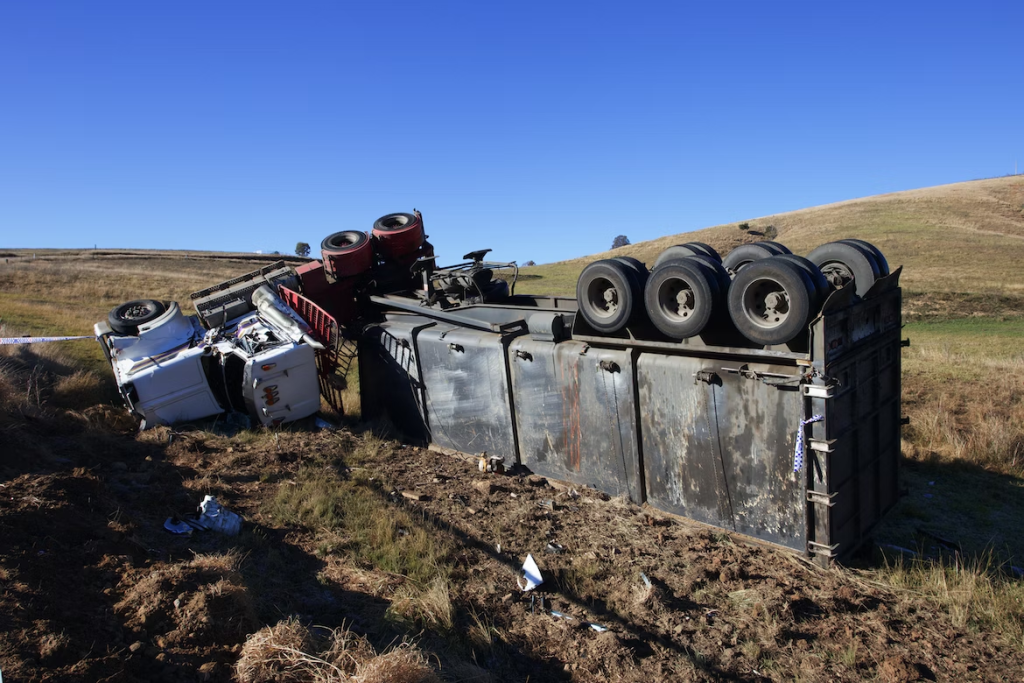As a truck driver, safety should be your utmost priority on the road. Operating large vehicles with heavy loads comes with great responsibility, and taking proactive measures to prevent accidents is crucial. In this blog post, we will discuss seven essential safety tips specifically tailored for truck drivers. By implementing these practices, you can navigate the highways and byways with caution, minimize risks, and protect yourself, your cargo, and fellow road users from potential harm. Let’s dive into these valuable safety tips that will contribute to a safer and more responsible trucking industry.
Prioritize Regular Vehicle Maintenance
Maintaining the mechanical integrity of your truck is crucial for safe driving. Conduct regular inspections of tires, brakes, lights, and other critical components. Check the tire pressure and tread depth to ensure optimal traction and reduce the risk of blowouts. Inspect the brakes for wear and ensure they are functioning properly. Check all lights, including headlights, taillights, and turn signals, to guarantee they are working correctly. Regularly check fluid levels, such as oil, coolant, and brake fluid, and keep up with scheduled maintenance to prevent unexpected breakdowns. Adhering to a thorough maintenance routine can help you identify and rectify potential issues before they escalate into dangerous situations on the road.
Practice Defensive Driving
Defensive driving is a key skill for truck drivers. Always be aware of your surroundings and anticipate the actions of other drivers. Maintain a safe following distance, especially during adverse weather conditions or heavy traffic. Leave enough space between your truck and the vehicle ahead to allow for proper braking distances and reaction time. Avoid distractions, such as mobile devices or eating while driving, as they divert your attention from the road. Constantly scan the road ahead, checking your mirrors and blind spots for potential hazards. By staying alert and proactive, you can react swiftly to sudden situations, avoid potential accidents, and protect yourself and others on the road.
Seek Legal Help and Ensure Adequate Insurance Coverage
In the event of an accident or unforeseen circumstances, truck drivers need to have access to legal assistance and proper insurance coverage. According to Semi-truck accident lawyers at The Bourassa Law Group, you should consult with a knowledgeable attorney who specializes in trucking accidents to understand your rights and obligations in the event of a collision or personal injury claim. They can guide legal proceedings, help protect your interests, and ensure you navigate any legal challenges effectively.
Additionally, maintaining adequate insurance coverage is vital for truck drivers. Work closely with your insurance provider to ensure you have the right policies in place, including liability insurance, cargo insurance, and comprehensive coverage. Regularly review your insurance policies to ensure they align with your specific needs and comply with legal requirements. By having appropriate legal support and comprehensive insurance coverage, you can protect yourself financially and legally, giving you peace of mind while on the road.
Adhere to Speed Limits
Exceeding the speed limit is a common factor in truck-related accidents. It’s crucial to observe and respect posted speed limits, adjusting your speed to match road and weather conditions. Remember, it takes longer for a large vehicle to stop compared to smaller vehicles. Speeding reduces your ability to react to unexpected situations and increases the likelihood of collisions. Maintain a safe and appropriate speed, especially when approaching curves, intersections, or work zones. By driving at an appropriate speed, you increase your ability to react to hazards, maintain control of your vehicle, and reduce the risk of accidents.
Take Breaks and Combat Fatigue
Fatigue is a significant safety hazard for truck drivers. Long hours on the road can lead to drowsiness and reduced focus, impairing your ability to operate your vehicle safely. Prioritize getting adequate rest and taking regular breaks to combat fatigue. Plan your trips to include sufficient rest stops and take advantage of designated rest areas. Listen to your body and recognize the signs of fatigue, such as yawning, heavy eyelids, or difficulty concentrating. When you notice these signs, pull over in a safe location to rest or take a short nap. Remember to get a good night’s sleep before starting a long journey, and avoid driving during your usual sleep hours.
Secure Your Cargo Properly
Properly securing your cargo is essential to prevent load shifts and potential accidents. Before starting your journey, thoroughly inspect the trailer and ensure it is in good condition, with no loose panels or damaged restraints. Make sure to distribute the weight evenly throughout the trailer and within the weight limits allowed by law. Utilize appropriate restraints, such as straps, chains, or nets, to secure the cargo. Double-check the security of the cargo before departing and periodically inspect it during transit. Ensure that all doors and latches are properly closed and locked. By ensuring that your cargo is secure, you reduce the risk of accidents caused by shifting loads, which can affect the stability and handling of your truck.
Stay Updated on Weather Conditions
Weather conditions can greatly impact road safety, especially for truck drivers. Stay updated on weather forecasts and plan your routes accordingly. Check the local weather reports or use reliable weather apps before starting your journey. Be aware of any potential hazards, such as heavy rain, snow, ice, or strong winds, along your route. Adjust your driving behavior accordingly by reducing your speed and increasing your following distance.
Use caution when approaching curves or bridges, as they may be more slippery during adverse weather conditions. Be prepared to pull over in a safe location if conditions become too hazardous to continue driving.
Continuous Training and Education
Safety is an ongoing journey, and as a truck driver, you should always be open to learning and improving your skills. Participate in additional training programs and stay updated on the latest safety regulations and best practices. Seek opportunities to enhance your knowledge and skills related to defensive driving, cargo handling, and emergency procedures. Stay informed about new technologies, techniques, and guidelines that can enhance your driving abilities and promote safer practices on the road. Regularly review and refresh your knowledge of traffic laws and regulations.

Safety should be the top priority for every truck driver. By following these seven essential safety tips, truck drivers can minimize the risk of accidents, protect themselves, and ensure the safety of other road users. Prioritize regular vehicle maintenance, practice defensive driving, adhere to speed limits, combat fatigue, secure your cargo properly, stay updated on weather conditions, and invest in continuous training and education. By incorporating these safety measures into your daily routine, you can contribute to a safer and more responsible trucking industry.
Remember, every decision you make on the road has the potential to save lives and prevent accidents. Drive safely and be a role model for other truck drivers, ensuring that everyone reaches their destination safely.





















